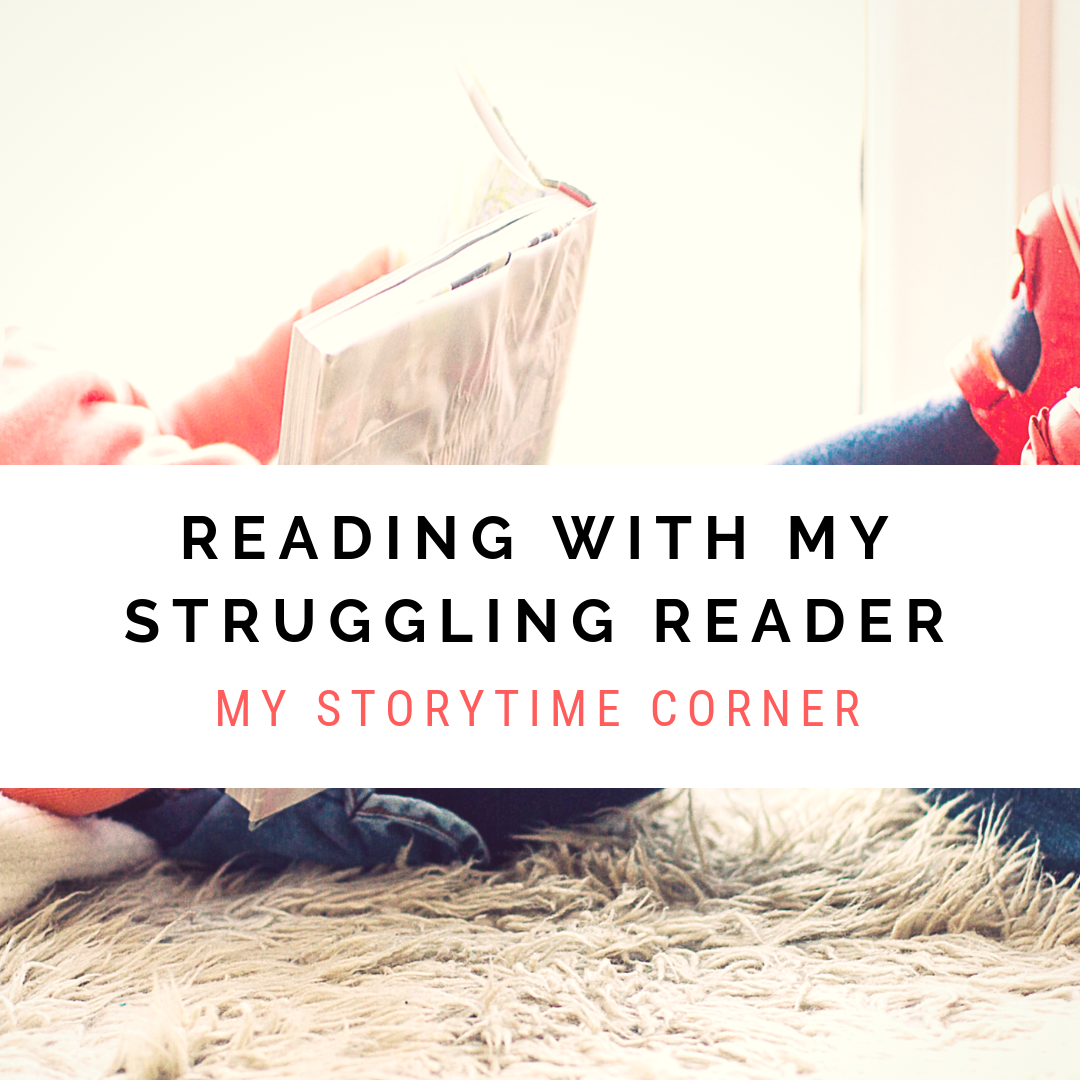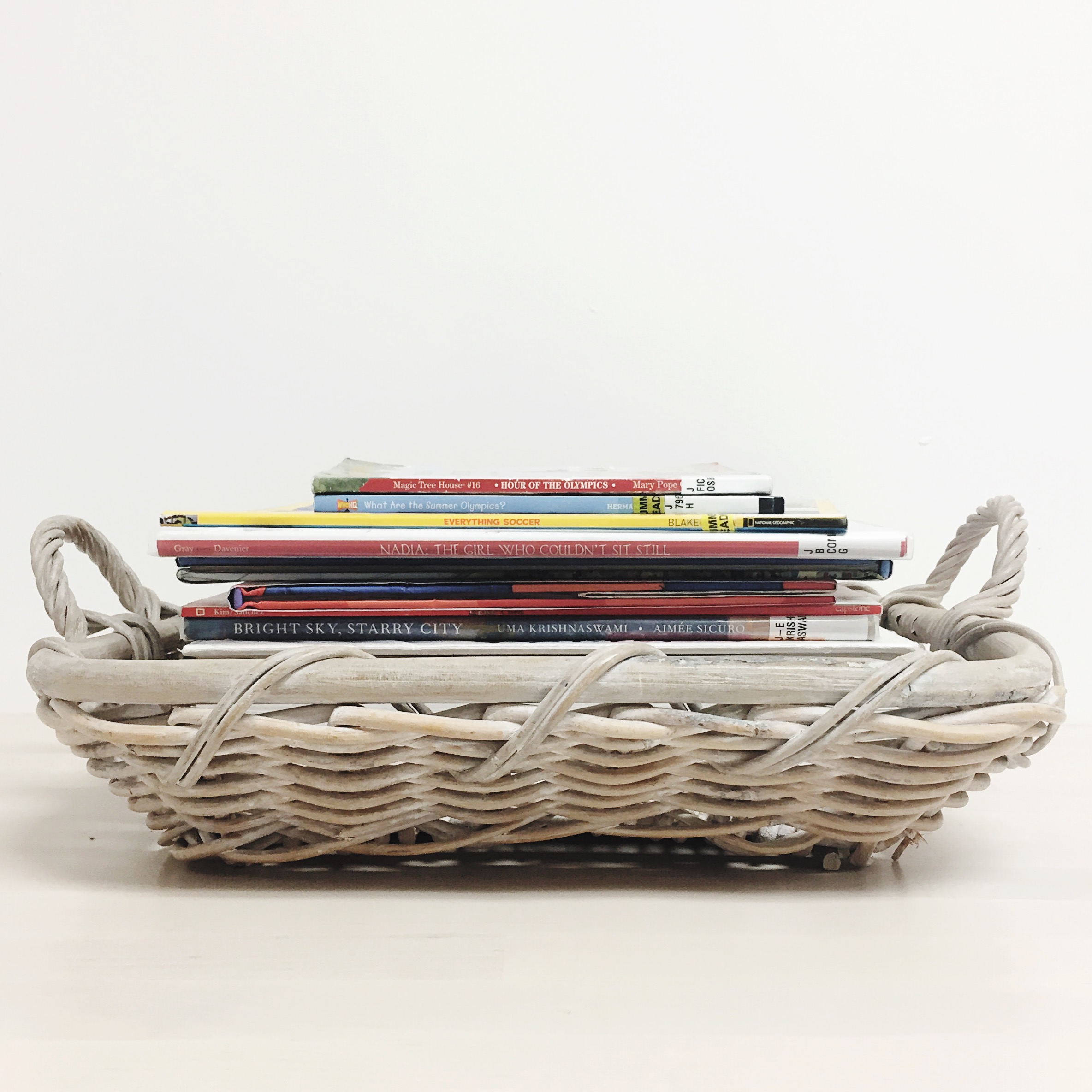I have a struggling reader in my house. As a parent it is impossibly hard to watch your child struggle with anything. Struggle to make friends, to learn a sport, to tie their shoes…we want to protect them, to make everything better and easier.
And reading…well you guys know how much I love books. I guess I always just assumed my kids would be avid readers. That’s the first thing I really learned about parenting though – don’t assume. Your kids will surprise you at every turn.
While I think there is more to being a child, a person, than being able to read the statistics about reading proficiency and life trajectories are staggering. I worry constantly about her future. Her ability to do whatever she wants.
Part of me definitely feels like I failed her somehow. Logically I know this is ridiculous. It’s no secret that my husband and I read aloud every single day to our kids. If you’re been in my house for even a minute it’s impossible to doubt that my kids have been well surrounded by books. On paper we did everything “right” when it comes to preparing them to read. You mamas know though, that doesn’t really matter. We all worry that we’ve somehow screwed up, right?
Truthfully I don’t feel comfortable sharing too much about her reading because I believe this is her story. Her journey. Her struggles. Her emotions about it all. Maybe she’ll be okay with talking about it someday, I hope she is because I personally find it helpful, but that’s up to her.
So I’m not going to walk through the assessment process or her diagnosis or her big emotions about all this, I’m just going to talk about my perspective on it.
As parents I think we are quick to share our kids’ wins and strengths, but their weaknesses that we worry about and feel alone with we so rarely talk about aloud. It is my hope that my experience, while as unique as my sweet girl, might at least help one more parent to feel less alone.
affiliate links may be included below

When I was sure something was off…
When my twins completed First Grade I had two new seven year olds and two very different readers.
One of my twins was reading well above grade level. He was reading chapter books and long non-fiction texts on his own. He routinely powered through a chapter book or two before falling asleep each night.
My other child was struggling.
They had both come from a house where they were surrounded by books.
They both made weekly trips to the library.
They both had parents that routinely read to them from the moment they were born.
They both loved books.
But at the end of First Grade, one excelled in reading. The other, despite working harder than I can describe, struggled to read at even at a passing level.
I was worried, but determined not to panic.
My biggest fear was and is if she felt too much pressure to read TODAY that she would revolt. My little girl who routinely feel asleep with a book on her face, who carried stacks to and from the library every week, and who would listen to stories every moment of the day if someone had the stamina to read that long to her might learn to hate reading.
I worried more than anything that she would lose her love of books.
We moved forward with assessment. My background is partly in Special Education so I do firmly believe in early intervention. I read everything I could get my hands on about dyslexia and attention and reading instruction. Research is part of what helps me feel grounded and calm.
Once I felt more prepared, despite that queasy feeling a parent has in their stomach when they aren’t sure they’re doing the right thing for their kid, I decided to continue to lean into her love of books.
At school they worked with her in various ways and at home we did start teaching her to play chess and employed some other techniques that teachers, books and blogs had recommended. Reading doesn’t happen in a vacuum, especially for someone who is struggling, but mostly at home we read.
I read to her. My husband reads to her. Friends read to her. And she reads to us. To her brother. To her grandparents.

Reading Routine
Our days all vary, but in terms of reading, they looked something like this:
- Breakfast Time – Books at her reading level (see list below) are strewn on the table for her to read when she woke up and while she eats breakfast. If she wants to she can read aloud to me, but it isn’t forced.
- Reading on the Go – Whenever we go somewhere I pack a book or two. Sometimes I read aloud from a chapter book (see list below) while we wait somewhere or sometimes she reads to me. Pool breaks in the summer and warm afternoons are one of our favorite reading times.
- Snack Time – At snack time we take a turn reading aloud a book. I read a picture book or chapter from our current chapter book. My son reads a book and she reads a book. This has been a low pressure way to fit in some extra reading that works well for us.
- Bedtime Read Aloud – Before bed my husband and I take turns reading aloud each night to our kids together. They each pick a picture book or we read some from our current chapter book.
- In Bed One-on-One Reading – Every night after our shared story time I snuggle in bed with her and she reads aloud a few books to me. She adores one on one attention from her busy twin mama so she usually loves this chance to get me to herself and will read as many books as we can fit in. We track this time with our #aReadaDay Printable.
- Reading to Herself – After she reads to me for a while, she can stay up for a while and read to herself if she wants. She always chooses to do this and ends up with a huge stack of books that she has paged through or read to herself by the end of the night.
There were other times that we fit in extra reading, but these happened almost every day.
Other Reading Activities
Beyond those daily reading opportunities, we also:
- We visit the Public Library weekly. I find having “new” books around often reinvigorates their excitement for reading. In the Summer we participate in the Summer Reading program at the Public Library and she proudly hands in her reading lists on each trip in exchange for a new book to keep. (LOVED that prize by the way!)
- In the school year she gets extra reading support at school. In the Summer we participate in the Summer Reading Buddy program at the library where she got to read with a teenage buddy for an hour. More of that one on one time she loves.
- Have a reading party every week when we got home from the library where I read aloud for as long as my voice would hold out, reading all of the new books we brought home from the library.
Reading Skills We Practiced
As you can tell from above, I do a lot of reading aloud. I believe in the power of reading aloud, of modeling reading, and of the whole language approach to teaching kids to read, but as I mentioned earlier building skills that don’t come naturally for some kids is also important. We did also work on some reading strategies every day when she read aloud, including but not limited to:
- Basic decoding skills such as looking for chunks.
- Reading the words around an unfamiliar word to help discover the meaning of the word.
- Played rhyming games and made up poems.
- Word family games to help build her sight word bank.
- Played word games like Bananagrams where I provided her with consonant clusters or vowel combinations to build around. (The kid version of the game is helpful because it already does this a little!)
- I find a lot of useful ideas on this blog about dyslexia.
Books I Highly Recommend for First and Second Graders
One of the biggest struggles I have found with have a struggling reader is finding books that are easy enough for her to read but that are advanced enough content-wise that she will want to read them. (I have the opposite struggle with my son – this list has been an awesome starting point for advanced second grade readers.)
These are books that are at a first/second grade reading level – I tried to generally sort them in order from easiest to hardest – that are still interesting, fun reads. ** IF you have know of other great ones for this age group please comment at the bottom and I’ll add them! **
Beginner Books
If you are looking for books at a truly beginner level then this is a great starting place: Books New Readers Can Actually Read Those are the books my kids read first. They are great, brief, engaging texts.
Picture Books – 1st/2nd Grade Reading Levels
These are picture books assessed to be between a DRA2 level 6 / F&P level E to DRA2 level 28 / F&P level M.
- Big Al by Andrew Clements
- Miss Nelson Has a Field Day by Harry Allard
- Whistle for Willie by Ezra Jack Keats
- The Dot by Peter H. Reynolds
- Stand Tall, Molly Lou Melon by Patty Lovell
- Good Rosie! by Kate DiCamillo
- Bravo, Amelia Bedelia! by Herman Parish
- Officer Buckle and Gloria by Peggy Rathmann
- Stellaluna by Janell Cannon
- CinderEdna by Ellen Jackson
Chapter Books – 1st/2nd Grade Reading Levels
- Snail and Worm by Tina Kugler
- Charlie and Mouse series by Laurel Snyder
- Mercy Watson series by Kate DiCamillo
- The Infamous Ratsos series by Kara Lareau
- The Princess in Black series by Shannon Hale & Dean Hale
- The Wellie Wishers series by Valerie Tripp
- Owl Diaries series by Rebecca Elliott
- Ivy & Bean series by Annie Barrows
- Dino-Mike series by Franco
- The Chicken Squad series by Doreen Cronin
- Claude series by Alex T. Smith
- Bad Kitty series by Nick Bruel
Books for Kids with Dyslexia

I would love for this booklist to be longer and I’ll keep looking but for now we like the way this book, THERE’S A MONKEY IN MY BACKPACK!, explains what it’s like to deal with something like Dyslexia in a school setting.

Progress
The night before her latest IEP meeting she paused while reading and asked me why everyone was so worried about her reading level. Kids are so perceptive, aren’t they?
I attempted to explain bell curves and learning to read vs. reading-to-learn in a totally calm and kid-friendly way. She shrugged and said “Don’t they know that everyone learns at their own pace? I’m going to be able to read, I just have to do it at my pace Mommy.”
I still have a struggling reader in my house. It’s still hard to watch. I still want to find a magical lever to pull or wand to wave so I can fix this for her. But I also celebrate that I do have another reader in my house. A slow reader, but a reader. She still loves books. She still wants to read another story to me. She still believes that she can do this. For now, that feels like a victory.



